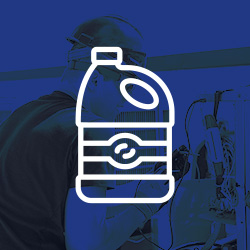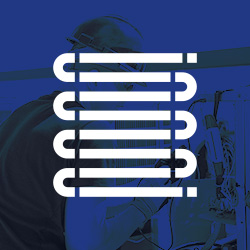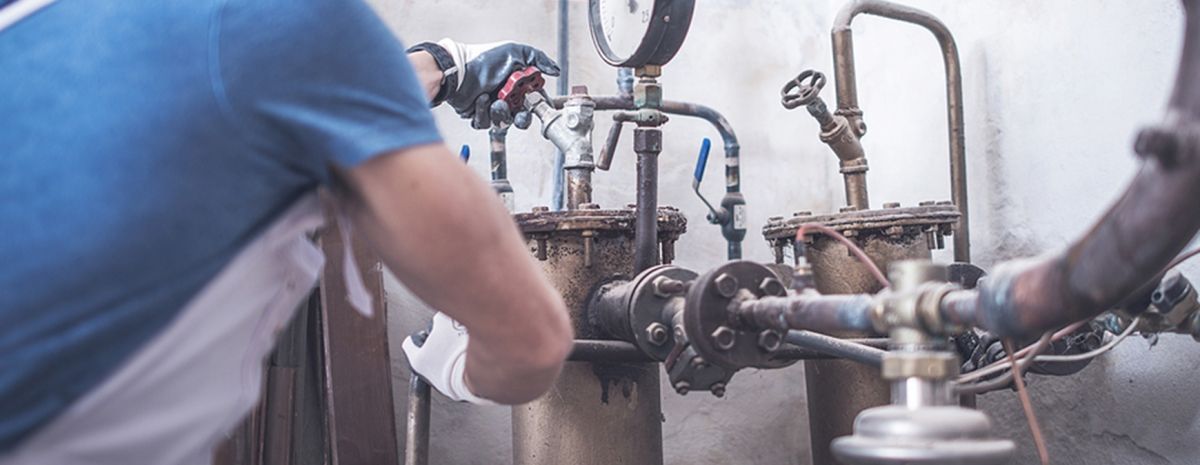RSI is a Great Training Option for Everyone
Learn more about how we can prepare you to advance your career.
After you finish your HVAC classes and start working as an HVAC technician, you might encounter some gross things from time to time, such as condensate pump slime.
Pump slime can clog an HVAC system and keep it from running properly—which is where you’ll come in to help your customers get it back to working order.
What Is Condensate Pump Slime?
Condensate pump slime is a white goo that oozes out of an air conditioning unit. It is actually a protective coating for colonies of bacteria. Warm summers bring pump slime because the bacteria love the dark, damp conditions. May through August are the most common months to see slime growth in your HVAC system.
The bacteria tend to grow in places like evaporator pans, drain lines and condensate pumps. They use the dust particles that come through the HVAC system as a food source, making the HVAC system a great home—but a problem for the homeowner.
The Problem with Pump Slime
While the bacteria itself is not harmful, the problem is that when this white slime builds up in an HVAC system, it can cause condensate backup and eventually evaporator pan overflow. In other words, it clogs the pump and leads to water draining out of the system, rather than flowing properly.
Get Started on the Path to a New Career
Fill out our form to learn how we can help you change your life.
This excess water can lead to mold growth and leaks, which if left unaddressed could even cause property damage or health hazards. Untreated, the mold growth that results from the extra drainage could cause poor air quality as it circulates through the home, which could cause health complications.
How to Get Rid of Pump Slime
Unfortunately, just wiping up the mess isn’t going to get rid of the problem for good. Even when using an antibacterial agent, you could very well expect the bacteria colony to return next year unless you do a very thorough cleaning.
As an HVAC technician, you may be tasked with cleaning out condensate pump slime for customers. Here is what you should do to get rid of the slime:

Remove the Air Filter
First, remove the air filter. Bacteria love to congregate here. The old air filter should be removed and thrown away completely, rather than just cleaned and put back in to prevent the colony from returning in the same place later.

Vacuum Bacteria and Debris
Next, with the air filter gone, you can work on cleaning out the bacteria from the entire system.1 Use a strong suction vacuum to suck everything out of the system, including dust, debris and all the white slime.

Clean Bacteria With Bleach
Then, create a half-bleach/half-water solution. Pour it into the drain pan with the vacuum turned on. Rinse all the lines and pans thoroughly. This should remove most of the bacteria to slow down regrowth.

Clean Coil and Replace Air Filter
Finally, clean the coil and replace with a fresh air filter.
Some technicians decide to leave behind special tablets designed to kill bacteria when they become wet; however, as these tablets shrink in size they could be carried along in the water and clog the drain. To prevent this, technicians should leave tablets in a safe spot where this won’t occur, put them in a container, and check back in on them frequently during regular maintenance.
The Importance of Spring HVAC Maintenance
The final step to getting rid of and preventing white slime growth is to strongly encourage your customers to stay consistent with spring HVAC maintenance each year. Most slime problems that appear in HVAC systems are reactionary, which means they are the result of problems built up over time, usually in HVAC systems that have not been serviced in a while. As a working HVAC technician, you will know the benefits of pre-summer maintenance, but your customers may not.
Hopefully, if your customer ever has to deal with this unpleasant white slime, it may jolt them into scheduling HVAC maintenance prior to peak cooling season. Preventative HVAC maintenance can help to catch problems early and reduce the need for emergency HVAC, as well as prevent complete system failure.
After graduating from HVAC school, be sure to impart your knowledge upon your customers and strongly recommend they conduct regular preventative maintenance to prevent issues like condensate pump slime!
Additional Sources
1https://kobiecomplete.com/blog/white-slime-could-be-clogging-your-ac-drain-line/
This blog has been labeled as archived as it may no longer contain the most up-to-date data. For a list of all current blog posts, please visit our blog homepage at https://www.rsi.edu/blog/




